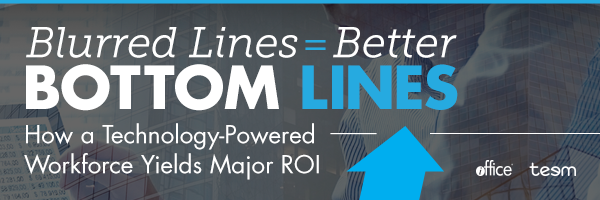Why Failure Is Key to Building a Digital Workplace


No one likes to fail. It makes us feel uncomfortable, embarrassed, inadequate. And in the workplace, failure can lead to write-ups, a demotion—even termination.

But failure is not fatal, and as author Eloise Ristad put it so perfectly: “When we give ourselves permission to fail, we, at the same time, give ourselves permission to excel.”
As with any major initiative, the process of creating a digital workplace has many opportunities to fail. But attempting to avoid failure at all costs actually will be more detrimental in the long-term and could potentially result in expensive mistakes.
If you want to build a productive, employee-centric digital workplace, you must be willing to embrace failure. Here’s why.
Fear of failure hinders innovation.
A digital workplace thrives on innovation, creativity and a willingness to take chances. If you’re preoccupied with reducing the risk of failing, you’ll be your own biggest roadblock. You must accept that pursuing innovation sometimes means going outside your comfort zone and venturing into the unknown. (To make it easier, just pretend you’re the Indiana Jones of your workplace.)
Leaders who demonstrate a willingness to take intelligent risks inspire their workforce to do the same. Reduce the stigma of failure and show employees it’s OK to fail when they are seeking a way to improve the organization. This encourages employees to develop innovative strategies of their own and creates a more employee-empowered environment — a critical element of the digital workplace.
 The faster you fail, the faster you succeed.
The faster you fail, the faster you succeed.
If you try to accomplish too much at once and fail, the fallout will be much greater and likely more expensive. Plus you’ll have to explain to the executive team why the time and resources you allocated to the project were all but wasted (which is no fun for anyone.)
If you test ideas on a smaller scale, failures still will be frustrating but they’ll have less of an impact. Through experimenting and failing, you can achieve a more sophisticated understanding of a problem and then develop a better large-scale strategy with a higher likelihood of success.
BONUS: The insight you gain from minor failures will help you determine what kind of features and capabilities you’ll need from the technologies that are integral to the digital workplace and avoid investing large sums of money in the wrong solutions.
Understanding failure helps you be a better leader.
Not every failure is created equal and not every failure is “bad.” This might sound a bit counterintuitive, but Harvard Business Review’s Amy Edmondson explains the idea rather well. She argues that mistakes can be categorized as preventable, complexity-related or intelligent:
- Preventable failures are the result of an employee being negligent or willfully ignoring standard operating procedures. These are indeed “bad” and should be treated appropriately.
- Complexity-related failures are the result of uncertain or novel situations—for example, what you and your employees will encounter as you build a digital workplace. These are inevitable but offer you the opportunity to teach employees important lessons and help them avoid mistakes in the future.
- Intelligent failures are the “best” kind of failures. They take place in the context of experimentation when objective data is unavailable and provide valuable insight.
When you embrace this concept, you can improve the way you lead and increase the chances of employee success in the digital workplace.
Sometimes you won’t be able to tackle the obstacles you face while you’re building a digital workplace. While embracing failure can be scary, it’s much worse to just give up when faced with defeat or to avoid taking chances before failure is even an option. As long as you have the right attitude and the right technology in place, setbacks are only temporary and you can get back on the path to creating a modern digital workplace.
What do some of the biggest thought leaders in the industry have to say about the workplace of the future? Find out by downloading the free eBook now.
